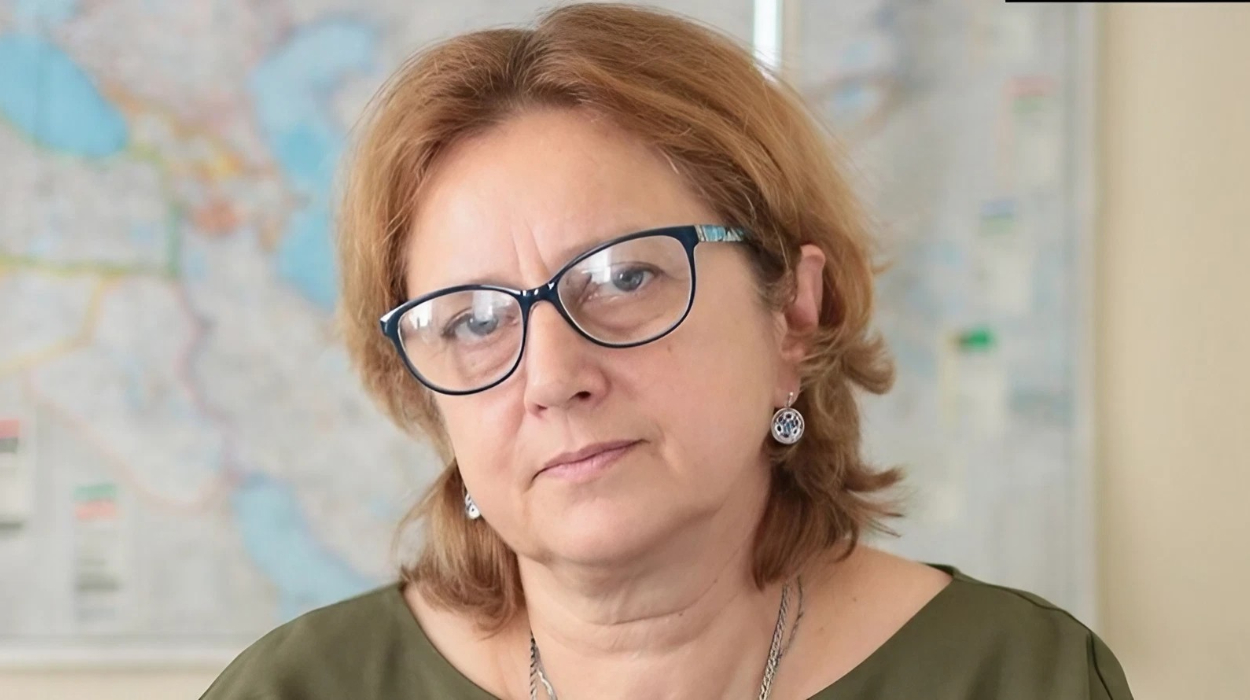New Challenges for NGOs in Abkhazia: Concerns and Defiance

Arda Inal-ipa, Director at the Centre for Humanitarian Programmes in Sukhum.
SUKHUM / AQW'A ― In a significant policy shift, the Government of Abkhazia has enacted stringent regulations on the activities of foreign non-governmental and international organisations within its borders, with the decree having taken effect on 20 November 2023.
This legislative change comes after concerns raised by Foreign Minister Inal Ardzinba regarding misinformation allegedly spread by UN agencies to the Abkhazian Ministry of Foreign Affairs about their project intentions in the republic. In response, President Aslan Bzhania has issued a decree revising the Temporary Regulations on the Implementation of Programs (Projects) of Foreign Non-Governmental and International Organisations in Abkhazia, building on the foundations set by the initial presidential decree of 4 May 2019.
The new decree requires foreign NGOs and international bodies to provide comprehensive information about their operations, including the details of local non-profit organisations involved, specifics of each event, its financial scope, and tax registration details. Additionally, these organisations must submit quarterly performance reports to the Ministry of Foreign Affairs, regardless of the start date of their projects.
The Ministry of Foreign Affairs of Abkhazia now appears more focused on duplicating the Justice Ministry's work rather than on its diplomatic duties.
In an interview today with 'Ekho Kavkaza,' Arda Inal-ipa, Director of the Center for Humanitarian Programs of Abkhazia, discussed her perspective on the new regulatory measures and provided an extensive insight into the situation:
"There has long been a theme of greater control by the power structures of Abkhazia over the work of non-governmental organisations. The Ministry of Foreign Affairs of Abkhazia seems to have changed its area of activity - not so much effort is going into diplomatic work as into duplicating the work carried out by the Ministry of Justice. Instead of resolving important tasks related to expanding recognition, establishing contacts with the international community, and affirming a more solid position in the system of international relations, considering the special position of Abkhazia, it feels like the Foreign Minister has set his goal to end relations with international organisations. He stubbornly fails to see the value of this work. His previous intention, it seems, was to completely stop cooperation with international NGOs. This, of course, causes great concern and a feeling that some of our officials are completely uninformed about what is happening in Abkhazia, the long path Abkhazia has taken in interacting with international organisations. And when it comes to greater control over the work of NGOs, we are not at all afraid. Yesterday's decree talks about increasing the level of control, but we are already very open, our reporting is very strict, and is subjected to constant checks, audits, etc. And if this decree leads to our authorities understanding more about what is happening in their country, what social problems exist, what problems there are in the field of education, in the information system, then this will only be better. The other issue is that someone might plan to paralyse the activities of non-governmental organisations with excessive control. But I think that will not happen because it is important and necessary for Abkhazia."
When asked, "So, you're not at all intimidated by this control?" Inal-ipa responded confidently:
"Absolutely not intimidated. In my opinion, this situation has revealed some prejudices, a lack of information about what is happening, and about people as well. Unfortunately, this suspicious attention is not directed towards people who are involved in shadow business, engage in corruption, etc., but towards people who are completely open and have long earned respect in their country. Well, if additional checks are needed, let them be."
+ Liana Kvarchelia: "They Called Us the Gudauta Separatists"
+ Citizens of Abkhazia Against the "Law on NGOs-Foreign Agents"
+ Said Gezerdava: "This is a Public Threat Against the Abkhazian Society"
+ “There are not as yet either any amendments or a law, but we have already been listed as enemies”
Arda Inal-ipa's comprehensive statements reflect a broader sentiment among civil society actors in Abkhazia, who view these regulatory changes as a test of their resilience and adaptability.
For three decades, the civil society in Abkhazia has played a pivotal role in the preservation and consolidation of Abkhazian statehood. The vibrancy and functionality of this civil sector are crucial to achieving the democratic aspirations enshrined in its Constitution. International experts and diplomats hold the Abkhaz civil society in high regard for its strength and resilience. This respect stems not only from its promotion of democratic values within Abkhazia but also from its capacity to assert and defend the Abkhazian agenda on the global stage. Historically, the relationship between the authorities and society in Abkhazia has been shaped by a unique blend of traditions, national mentality, internal dialogue, and consensus-building. This collaborative spirit is essential for the continued progress and stability of the nation.
As Abkhazia navigates these new regulatory challenges, the role of its civil society remains more critical than ever, underlining the importance of maintaining a balanced and constructive dialogue between the government and its people for the future prosperity of the country.